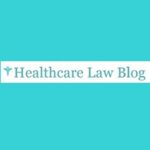New Jersey Rule Takes Effect Governing Prescribers’ Compensation from Pharma
New Jersey prescribers receiving almost anything of value from a pharmaceutical manufacturer, must ensure that such compensation complies with a new state regulation that took effect January 16, 2018. The rule, Limitations on and Obligations Associated with Acceptance of Compensation from Pharmaceutical Manufacturers by Prescribers, was adopted as one of the last acts of the Christie Administration to address the state’s opioid epidemic. The rule’s stated purpose is to regulate the receipt and acceptance by prescribers of anything of value from pharmaceutical manufacturers to ensure that such relationships do not interfere with prescribers’ independent professional judgment. Despite state and federal laws (such as anti-kickback laws and the Open Payments Act) already in place to limit improper influence by pharmaceutical companies and representatives in medical decision-making, and a voluntary PhRMA code of conduct already governing pharmaceutical companies and representatives, New Jersey has added yet more stringent restrictions on prescribers.
The restrictions—applicable to New Jersey physicians, podiatrists, physician assistants, advanced practice nurses, dentists, and optometrists and, in most cases, the prescriber’s immediate family—include an annual cap of $10,000 on prescriber compensation received, in the aggregate, from all pharmaceutical manufacturers for certain “bona fide services.” This includes payments for speaking at promotional activities, participation on advisory boards, and consulting arrangements but does not apply to speaking at education events, payments for research activities, and certain royalty payments and licensing fees. Education events (including continuing education events) must meet the rule’s requirements for overall purpose, acceptable venue, and financial disclosure.
In addition to the cap on compensation for bona fide services, the rule restricts the type of gifts and payments that prescribers can accept from pharmaceutical manufacturers/representatives. Prohibited items include, among other things, cash, gift cards, stock, entertainment and recreational items, and items for a prescriber’s personal use. Exempted are items for prescriber education or items for the benefit of patients, such as drug samples (which are subject to yet another existing regulation). Certain payments are permitted if compensation is based on fair market value, or if to remunerate permitted expenses of prescribers.
For so-called “clarity,” the rule allows for and defines the value of “modest” meals that can be provided in different settings. When pharmaceutical company representatives present information about a product in an in-office or in-hospital setting, or at promotional activities or education events, any food and/or beverage that is provided cannot exceed $15.00 per prescriber.
Last, but certainly not least, an arrangement for allowed bona fide services (such as speaking at promotional activities and education events, participation on advisory boards, and consulting arrangements), entered into after January 15, 2018, must be provided pursuant to a written agreement. While other laws already require a written agreement for such a services arrangement, the new rule imposes additional requirements, including a prescriber attestation.
In light of these detailed restrictions, prescribers should proceed with caution when receiving any type of compensation from a pharmaceutical manufacturer/representative and ensure that bona fide services arrangements are governed by a written agreement that complies not only with this new rule, but with all regulations that govern such relationships.
Questions regarding this article may be sent to Publications@Capehart.com.





$15.00 per prescriber. Does this include staff members or just the physicians. For example if they bring lunch to the office we have 2 providers and 10 staff members is the limit $30 or $180?